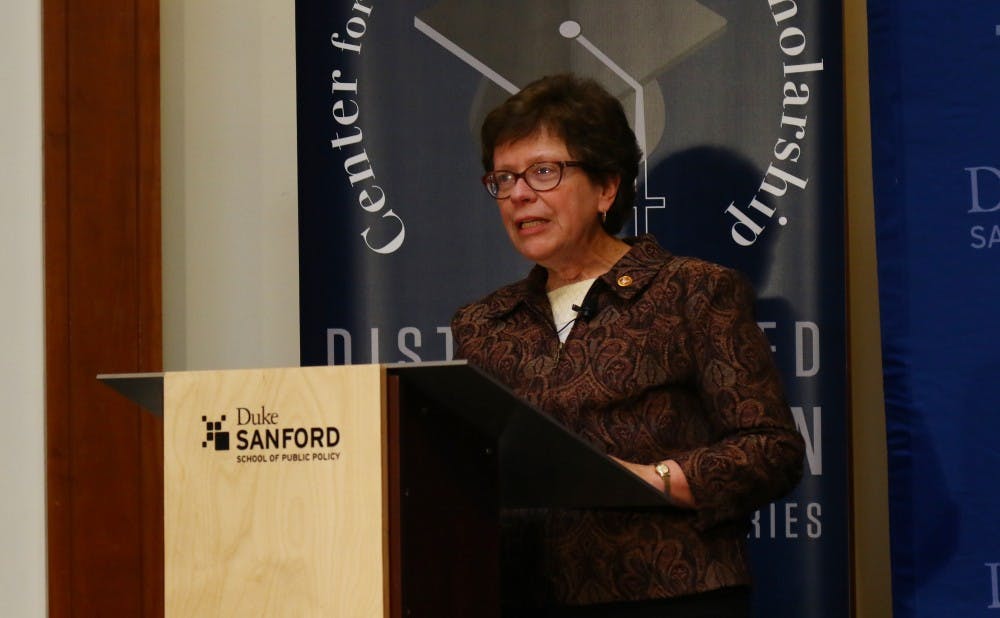Rebecca Blank, current chancellor of the University of Wisconsin at Madison, spoke Wednesday about the inherent tension between morality and economic decision-making.
Blank, who described herself as both a lifelong Protestant and a lifelong economist, reflected on the possible conflict in today’s society between the market’s reliance on materialism and the values of Christianity. The talk was part of the economics department’s Allen Starling Johnson Jr. Lecture series and the Distinguished Christian Scholar Lecture series of the Center for Christianity and Scholarship, an independent organization that hosts discussions on religion and academics.
“Self-interest alone is not an adequate construct for individual interaction,” Blank, former acting U.S. Secretary of Commerce, said. “Christianity demands interest in others. Markets are pretty clear that I am always better off if I have more choices, more things and more money. Christianity says well-being is not about more or less material goods, but spiritual abundance.”
Blank previously served on former President Bill Clinton’s Council of Economic Advisers. She also worked in the Department of Commerce from 2009 to 2013 before leaving that position to become chancellor of UW Madison.
“Those who work with me tell me I still think like an economist, and it’s not always said in a complimentary way,” she said. “But I truly believe in the power of markets. I believe in an economic system in which supply and demand work together to set prices. When they are functioning effectively, markets encourage productivity and innovation.”
Blank said she views Christianity as providing a framework for morality in economic decision-making, especially in times of economic downturn or stagnation. Although she said she believes in the market’s positive potential, Blank also explained that it can have destructive effects.
“In most cases, economic change brings both good and bad at the same time,” she said. “Our response to these issues as individuals must be based on a framework that allows us to discern the good and the bad, rather than rejecting the change and hiding from it. [The church] should be helping people deal with the changes people are facing.”
Although Christianity teaches interest in others over oneself, Blank acknowledged that interactions between the market and government can still lead to political differences among Christians.
“Even Christian people who believe we should reach out to those without a voice and who are disadvantaged can disagree about what this means about housing policy, about welfare,” Blank said. “These debates must be engaged in with a willingness to know that you may be wrong, and that’s okay.”
Despite the often conflicting perspectives of the market, government and Christianity, she said that ultimately, “the market has to serve the people, rather than the people serving the market.”
Freshman Neal Vaidya said he enjoyed hearing Blank’s thoughts on the modern market.
“I don’t really have a lot of experience with a religious perspective on economics, so it was a new way of looking at it,” he said.
The talk, attended by about 50 people, was followed by a Q&A session moderated by Luke Bretherton, associate professor of theological ethics. It was co-sponsored by the Sanford School of Public Policy, the Kenan Institute for Ethics, the Divinity School, the political science department and the Center for Politics, Leadership, Innovation and Service.
Get The Chronicle straight to your inbox
Signup for our weekly newsletter. Cancel at any time.

